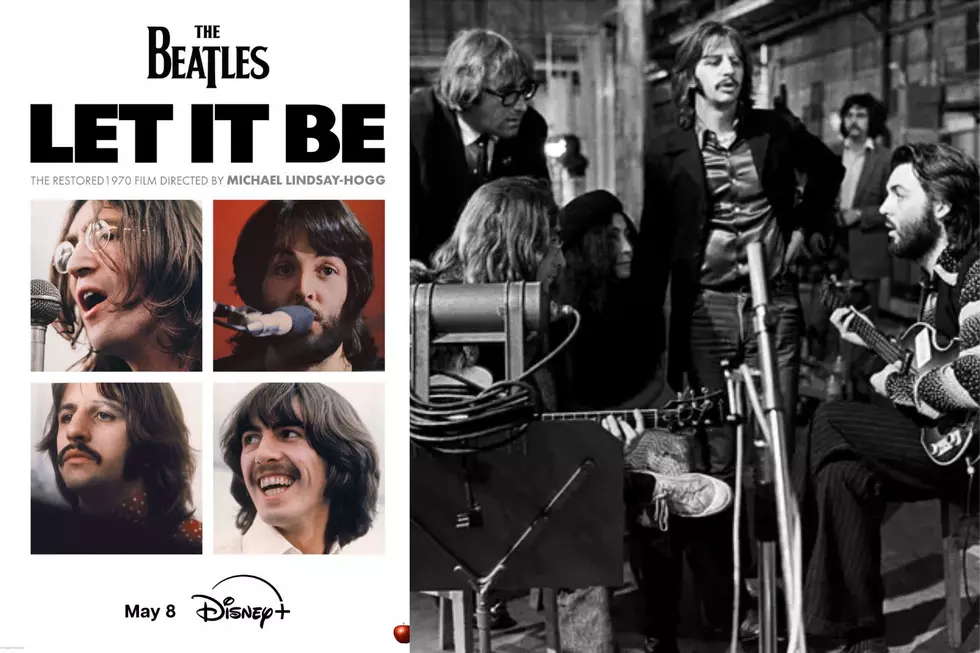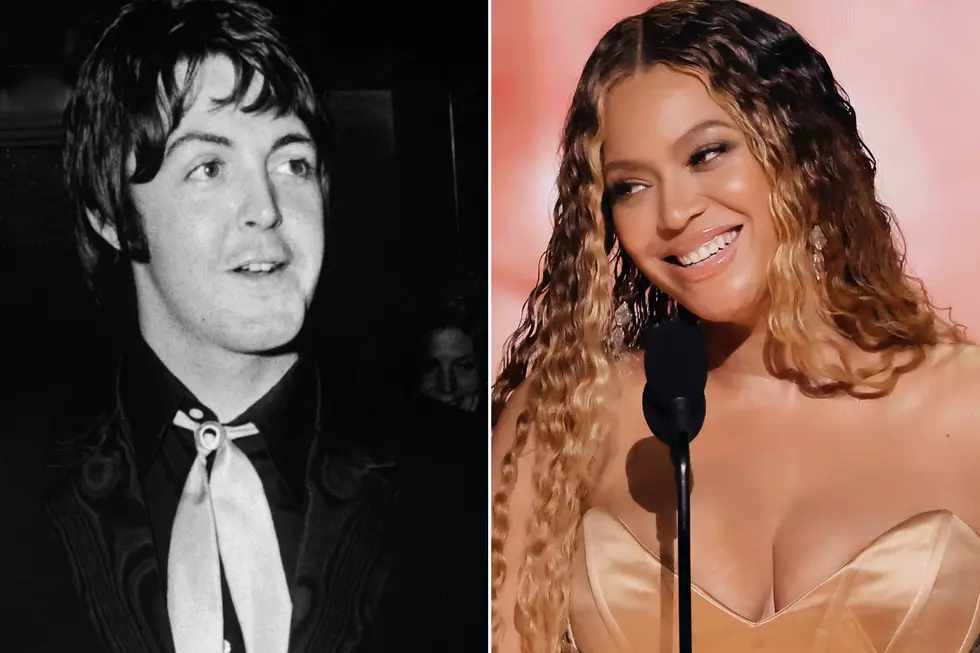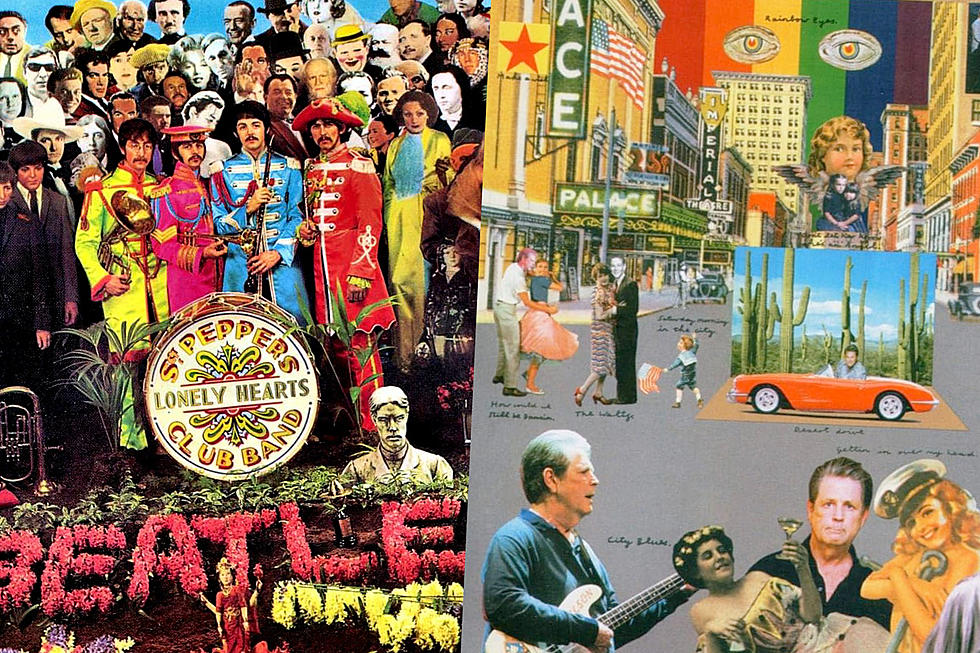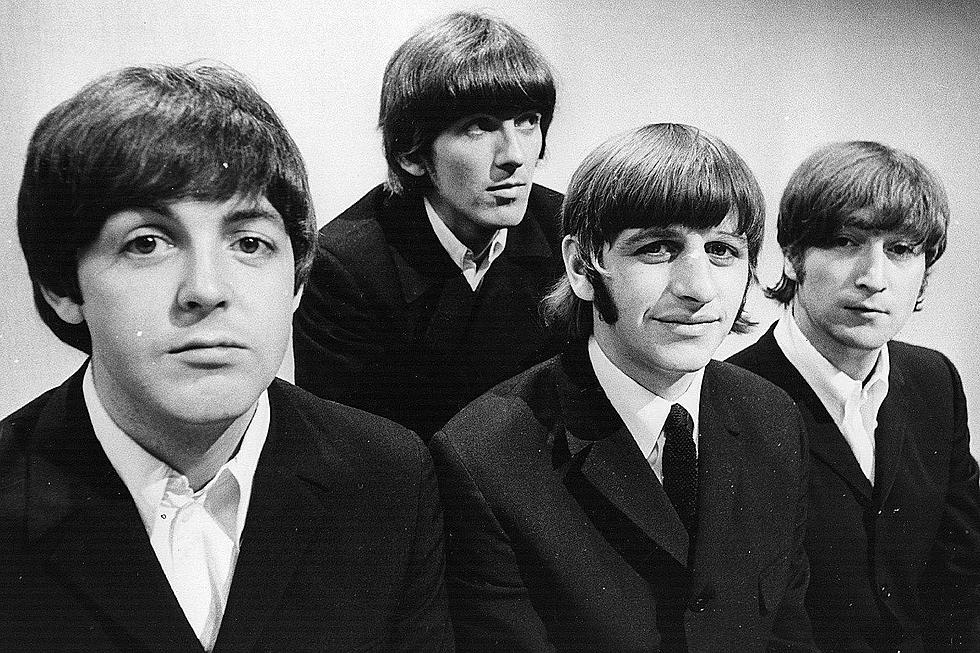
Did the Beatles Really Save Rock N’ Roll?
The impact the Beatles had, both on music and society, during their run was so sweeping that it’s sometimes tough to tell myth from reality. One of the most commonly held beliefs, offered without question in nearly every documentary about them, is that their arrival in America singlehandedly “saved” rock n’ roll from near extinction.
The mindset is this: At the time their single, ‘I Want to Hold Your Hand’ hit U.S. shores, rock music was in danger because so many from that original burst of stars were no longer around. Only Johnny Cash was still as popular as ever. Of the others:
- Elvis Presley was trapped in Hollywood.
- Chuck Berry had just served 18 months in prison for bringing a girl across state lines for “immoral purposes.”
- Little Richard had trouble re-establishing his career after a five-year flirtation with gospel music.
- Jerry Lee Lewis’ career fizzled out after his 1958 marriage to his 13-year old cousin.
- The Everly Brothers mostly disappeared from the charts by 1963.
- A plane crash on Feb. 3, 1959 tragically claimed the lives of Buddy Holly, Richie Valens and the Big Bopper.
In their wake, an assortment of interchangeable, sanitized, pompadoured pretty boys stepped up to take their place. Fabian, Frankie Avalon, and three guys named Bobby (Rydell, Vee and Vinton) all had their first major successes between 1958 and 1962. When the Beatles appeared on ‘The Ed Sullivan Show,’ it is said, they knocked all those guys off the charts – Vinton would continue to have hits through the mid-‘70s but, symbolically, his ‘There! I’ve Said it Again’ was bumped from No. 1 by ‘I Want to Hold Your Hand’ – and revitalized rock n’ roll.
Steve Van Zandt, as much of an authority on the early days of rock, puts it thusly: “Feb. 8, 1964, there was not one single rock 'n' roll band in the country. February 9, the Beatles played ‘The Ed Sullivan Show.’ Feb. 10, everyone had one. In the garage. ‘Garage rock’ is traditional rock 'n' roll. If you think of it as the early [Rolling] Stones, you're fine. My life began on Feb. 9, 1964.”
While it’s true that date still remains a watershed moment for everyone who was alive to witness it, further investigation reveals that Van Zandt was exaggerating quite a bit. Rock was far from in danger of dying out. In fact, it was in pretty good shape.
First and foremost in the equation was soul music. Motown was already a major force on the charts, with Martha and the Vandellas, Marvin Gaye, the Marvelettes, the Miracles, Mary Wells, and Stevie Wonder having their first hits before the Beatles. They also had the Temptations, the Supremes and the Four Tops waiting in the wings.
Down in Memphis, Stax wasn’t as dominant as Motown, but Rufus and Carla Thomas, Booker T. and the M.G.’s and Otis Redding were garnering national attention. Throw in James Brown, the Impressions, Jackie Wilson, Sam Cooke and others who weren’t attached to either of those labels and you have a sizable chunk of the charts controlled by the most vibrant and lasting music of its day.
And yes, Elvis Presley spent most of the ‘60s making lousy, low-budget movies, but he was still a fairly regular chart presence, even if the songs merely scratched the surface of his talent, from 1962-64 he had 11 Top 20 hits, including ‘She’s Not You,’ ’‘Return to Sender,’ and ‘(You’re the) Devil in Disguise.’ A few other classics, like ‘Viva Las Vegas’ and ‘It Hurts Me,’ also placed in the Top 30.
In November 1961, when the Beatles were still woodshedding in the Cavern Club, the Beach Boys – arguably their greatest contemporary competition for melodic and harmonic invention – released their first single. ‘Surfin’.’ By the end of 1963, they had released seven singles, three of which reached the Top 10. An eighth, ‘Fun, Fun, Fun,’ came out Feb. 3, 1964.
Despite the claims that the Beatles were the first rock group to write and record their own material, Brian Wilson wrote or co-wrote all but a handful of their songs, and had earned up a few production credits. And just as other Liverpool musicians were benefiting from John Lennon and Paul McCartney’s prolific ways, Wilson was also writing hits for acts like Jan & Dean and becoming the focal point of the vocal side of surf music.
The Four Seasons often get overlooked in rock history because they stayed an AM pop band as the more innovative groups moved over to the FM dial in the mid-to-late ‘60s. But it should be remembered that they had three No. 1 hits – ‘Sherry,’ ‘Big Girls Don’t Cry’ and ‘Walk Like a Man’ – by January 1963. And as the Broadway musical ‘Jersey Boys’ points out, the in-house writing team of Bob Gaudio and Bob Crewe were blending class-conscious lyrics with some of the best white harmony singing outside of Los Angeles.
Between 1960 and 1964, Roy Orbison, with whom the Beatles toured the U.K. in 1963, racked up a string of hits, including nine Top 10s, most of which were also self-penned or co-written. Pop psychodramas like ‘Running Scared,’ ‘In Dreams’ and ‘Only the Lonely (Know the Way I Feel)’ created new rules for songwriting and also showed off his operatic vocal range.
The folk revival took place during the post-Elvis, pre-Beatles period, with the Kingston Trio, Joan Baez and Peter, Paul & Mary rising to national prominence. While it wasn’t rock n’ roll, it was still vital through its role in the Civil Rights and other progressive movements. Most importantly to this discussion, folk musicians were the first to start covering the songs of Bob Dylan, whose star began to rise at the 1963 Newport Folk Festival. He had also released his third album, ‘The Times They Are A-Changin’,’ a month before the Beatles appeared on ‘The Ed Sullivan Show.’
New York’s Brill Building, where so many of the greatest songwriting teams worked, was flourishing. Burt Bacharach and Hal David, Doc Pomus and Mort Shuman, Barry Mann and Cynthia Weil, Jeff Barry and Ellie Greenwich, Gerry Goffin and Carole King, Luigi Creatore and Hugo Peretti, Jerry Leiber and Mike Stoller – these men and women cranked out scores of hits for nearly every major rock, pop and soul act of the day, and still form the foundation of oldies radio playlists.
The point of all that isn’t just to show what was on the charts in those years, nor is it an attempt to deny the Beatles their rightful place as the greatest and most important band in rock history, but rather that rock still existed by February 1964. Not only that, these were the very acts the Beatles were grooving to.
They loved Motown and girl groups, covering them on their early albums and singling out their favorites in the press whenever possible. Lennon originally fashioned ‘Please Please Me’ in the style of Orbison, and, in the recorded version, wound up nicking harmonies straight out of the Everly Brothers’ ‘Cathy’s Clown.’ The story of Brian Wilson and Paul McCartney trying to top each other with ‘Pet Sounds’ and ‘Sgt. Pepper’s Lonely Hearts Club’ is written into rock lore. They didn't discover Dylan until later in 1964, but he became a major influence on them and, according to one story, introduced them to marijuana. The Beatles' music didn’t just come out of nowhere; it was a synthesis of all these diverse sounds filtered through their own sensibilities.
Even if the Beatles hadn’t gotten far in their attempt to conquer America, there were plenty of other British bands just around the corner. The Rolling Stones, the Kinks, Dusty Springfield, the Animals, Peter & Gordon, the Dave Clark Five, the Searchers and many would all score big in America by the middle of 1964. The Beatles may have kicked down the door for them and gave them a template for success, but they were far from the only British band around capable of breaking in the U.S.
And while some of the American acts, such as Orbison, began to lose steam once the Beatles hit, that can just as easily be chalked up to the artists’ difficulties in reacting to changing sounds than a reflection on the quality of their previous work. So if all of these wonderful, diverse sounds were riding high on the charts in the early-‘60s, no less making their way across the ocean to Liverpool, can it really be said that the Beatles saved rock n’ roll?
More From Ultimate Classic Rock









